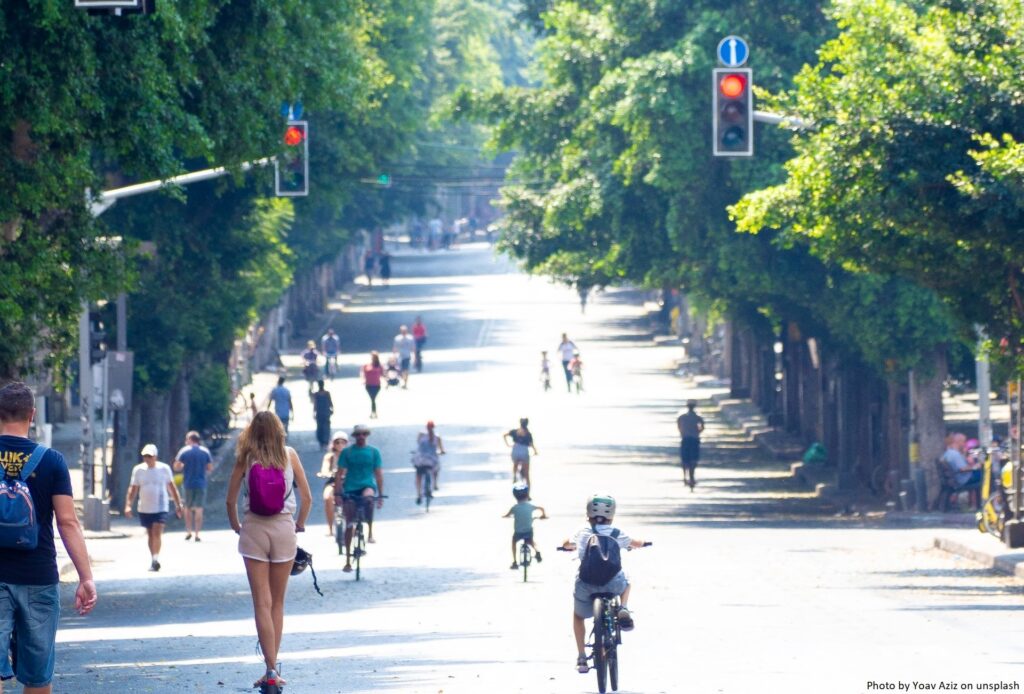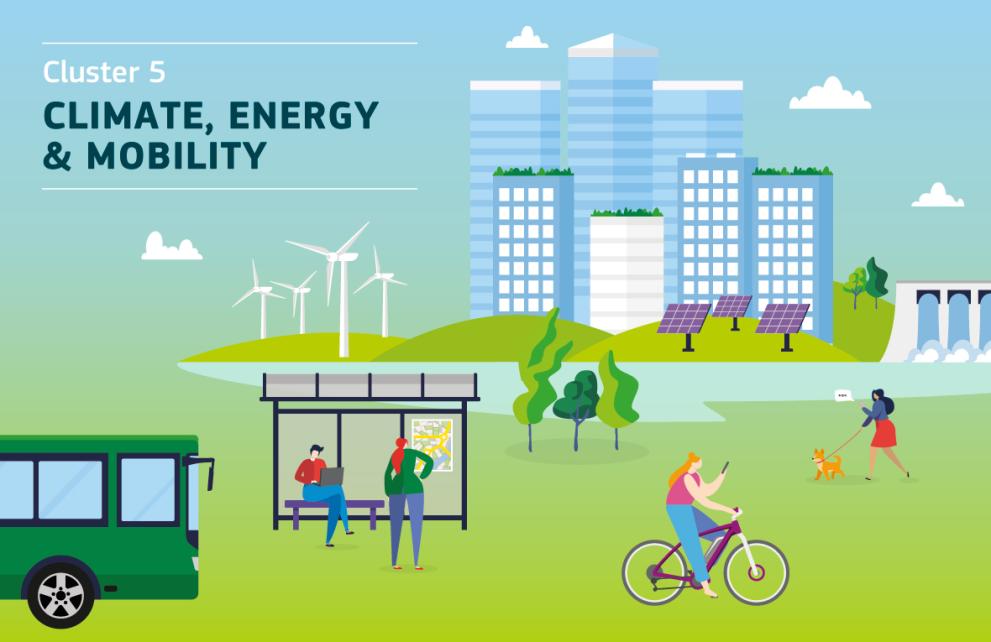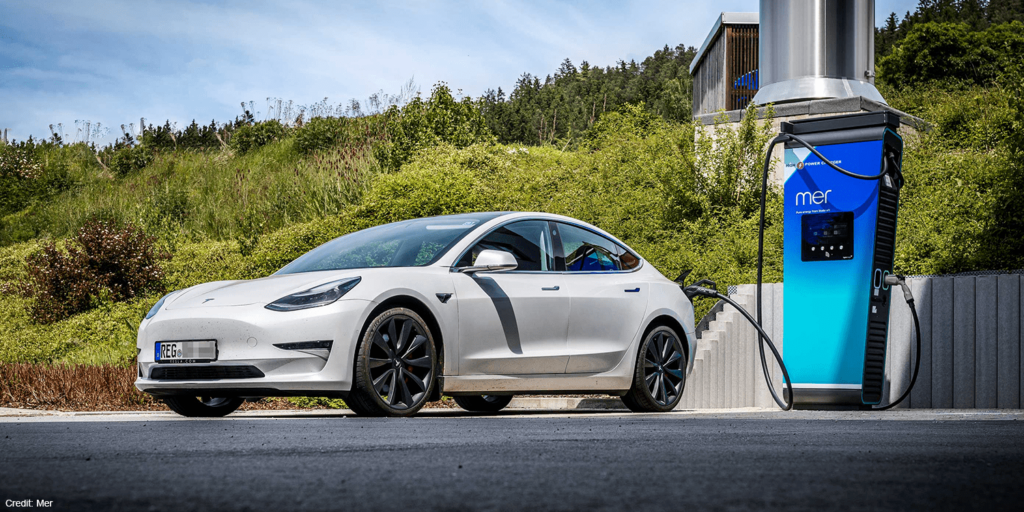The year 2022 has been a rollercoaster of a year; our climate is changing faster than we ever thought possible and Russia’s invasion of Ukraine displayed the fragility of our continent and the necessity for strong, decisive action, while looming financial uncertainties are creating unforeseen pressures.
In this context, cities can – and must – lead the way to decarbonise transport and create environments that place residents at the centre. Indeed, cities have been taking some inspiring actions which have transformed the ways their mobility systems operate, focusing on active travel, public transport and shared mobility. The 15-minute city concept has been core to this, and has taken urban mobility planning by storm, with large capitals and smaller cities all implementing new transport planning techniques to regulate traffic and make cities more liveable. The challenge now is building on this momentum to reach the ambitious climate neutrality targets cities have set themselves.
At POLIS Network’s Annual Conference in Brussels on 30 November and 1 December 2022, European Vice President Frans Timmermans, Professor Carlos Moreno, the developer of the 15-minute-city concept, and leading mobility decision makers from London, Paris, Barcelona, Brussels and Reggio Emilia discussed what cities will need to do in the coming years to reach their ambitious climate goals, as well as their congestion, air quality, road safety and modal shift targets, in the most effective, inclusive and sustainable way. “I am optimistic because we are more aware of the problems of urban spaces and can now act with full knowledge of them. I can feel a real desire for change coming from both politicians and citizens. The current dynamic is resolutely ecological and oriented towards well-being and quality of life on a day-to-day basis,” said Moreno. Moreno is the Scientific Director of the Chair ‘Entrepreneurship, Territory, Innovation’ at IAE, Sorbonne University. His internationally renowned and innovative approach led to the development of groundbreaking concepts related to modern urban issues, such as the ‘Human Smart City’, the ’15-minute City’, and the ’30-minute Territory’.
While the 15-minute city has taken the urban planning world by storm, our local, national and international leaders are also looking towards the next decade and how to create substantive, durable policies which ensure we stay on track for our climate targets. “15 years is what we are looking at when it comes to solving our climate crisis; this is no time at all! 15 years seems like a long time, but it is in fact a blink of an eye. European cities are our crucial partners in the transformation we need to achieve the Green Deal objectives,” said Timmermans, who took to the stage to encourage delegates to move forward with their sustainable mobility ambitions. “We can grow, if we grow differently. We can move more, if we move responsibility. Cities are the places where many problems come together and where the solutions are found. There is reason to be cautious, but not pessimistic. It may be tempting to hide in a form of nostalgia, and it may offer comfort for 15 minutes. But it will not get us out of the situation we are in. We need to embrace the opportunities of the future.”
Panellists discussed how cities and regions are managing the transition and are adapting their institutional frameworks to address the transport transformation we are going through in view of the societal goals we need to achieve. The Spanish city of Barcelona is one example of a city pioneering the 15-minute city through their superblock concept. A superblock is an area of urban land bounded by arterial roads; within the superblock, the local road network, if any, is designed to serve local needs only, the streets inside serving as public squares for the neighbourhood, widespread pedestrianisation and comprehensive traffic calming. For Barcelona, the move has paid off, as the city is moving at pace towards climate neutrality, and its superblocks have become a blueprint for Urban Access Regulations across the globe. Janet Sanz, Deputy Mayor for Mobility, Barcelona joined a panel in Brussels to press her peers to continue and accelerate current action, noting the importance of municipalities in climate leadership. “These next 15 years are the defining ones for the future of the planet and our cities. And we just started this transformation. We need to be persistent because although we are the smallest administrations, we are the ones that are acting faster,” she asserted.
Brussels too has been at the forefront of action. By 2030, Brussels is seeking to achieve a 40% drop in CO2 emissions. Brussels SmartMove is part of the region’s ‘Good Move’ mobility plan, seeking to reduce traffic during peak hours by around 30%. In addition, from September 2022, the use of park and ride car parks (P+R) in the Belgian capital became free for commuters. Furthermore, the subscription costs for Cycloparking, a network of secure parking places for bicycles throughout the Brussels’ agglomeration, is being reduced by 75%, thus encouraging commuters not to drive into the city. Addressing the panel, Elke van den Brandt, Brussels’ Minister for Mobility said: “Mobility is a competence that requires political courage. Across Europe, mobility changemakers are leading the challenging fight to make your cities and regions more efficient, more pleasant and above all: healthier for people and our environment.”
Across the channel, London too is stepping up its efforts to decarbonise transport. From shared bike schemes to low emissions zones – with a focus on accessibility and inclusion – the UK capital is throwing all its resources at climate neutrality targets. “In London, the Mayor and I are committed to tackling the triple challenges of air pollution, the climate emergency and congestion, and this means making bold action that means all Londoners can breathe cleaner air,” asserted Seb Dance, London’s Deputy Mayor for Transport.









